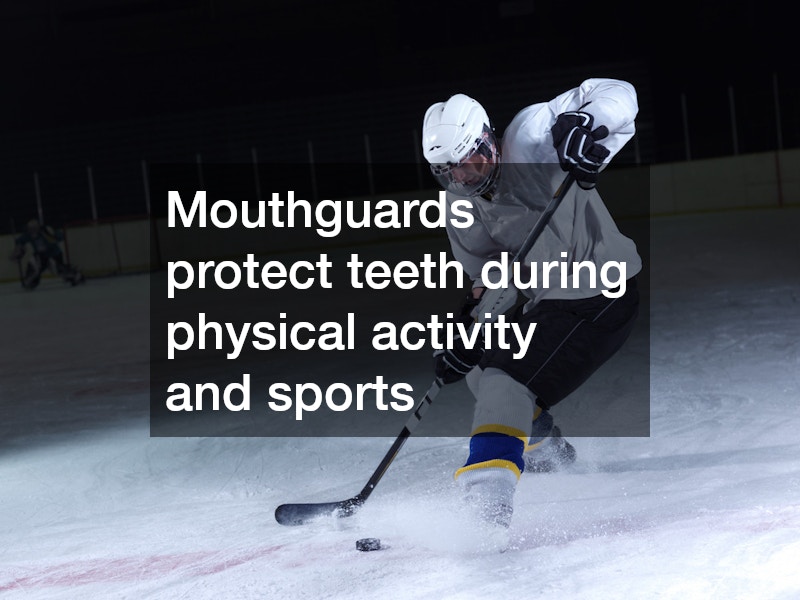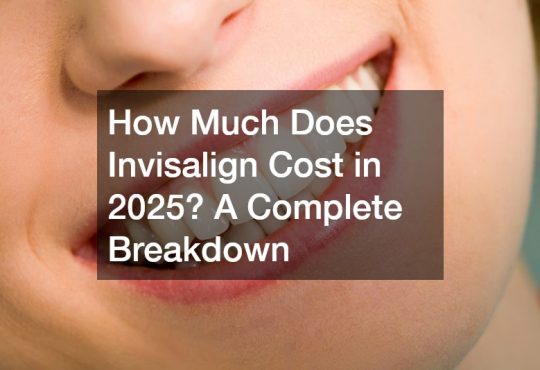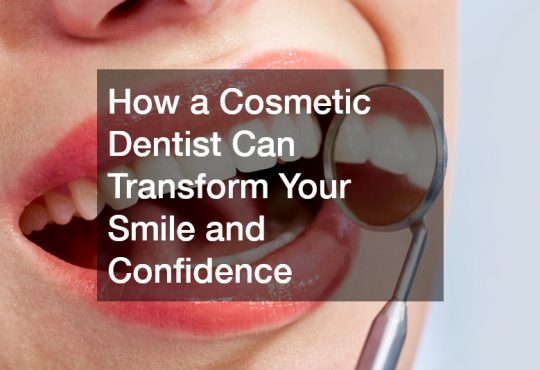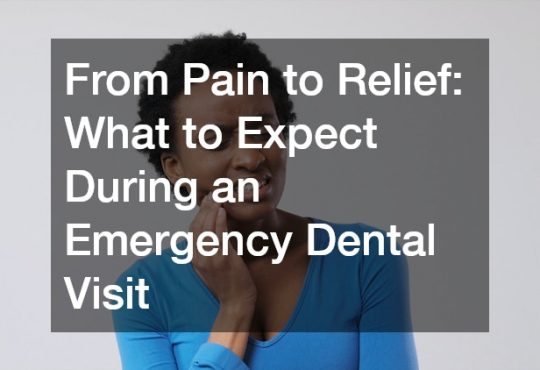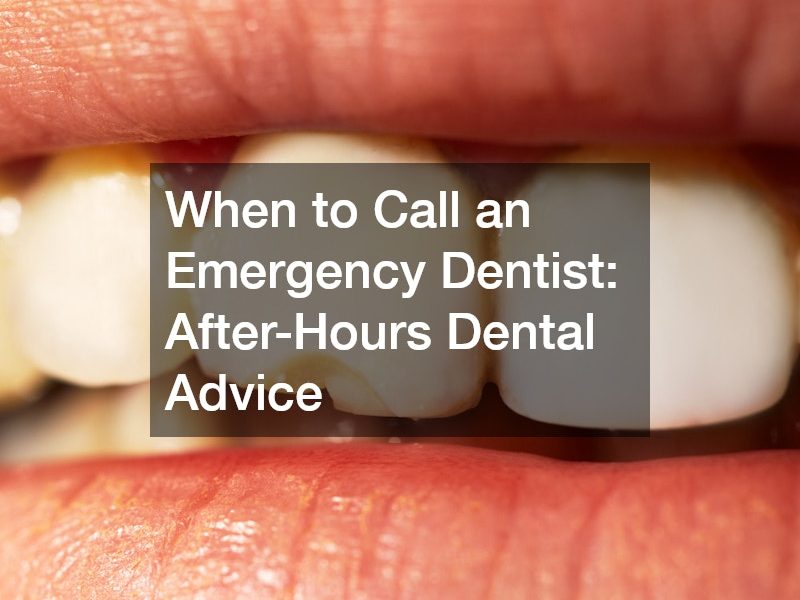
When to Call an Emergency Dentist After-Hours Dental Advice
Disclaimer: The material provided is designed to inform readers about oral health and preventive care. It should not be considered medical advice. Consult a registered dentist for guidance specific to your oral health needs.
When to Call an Emergency Dentist: After-Hours Dental Advice
Knowing when to contact an emergency dentist can save your teeth and reduce discomfort. This guide explains what qualifies as a dental emergency, how to manage pain at home, and what to expect during an emergency visit.
What Constitutes a Dental Emergency
Recognizing Signs of Severe Toothache
A persistent, severe toothache that doesn’t improve with medication often signals an infection or decay. If the pain is accompanied by swelling, fever, or a bad taste in the mouth, seek immediate dental care.
Infections can spread quickly, making early treatment essential to prevent complications.
Identifying Broken or Chipped Tooth Challenges
A chipped or broken tooth exposes inner layers and increases the risk of infection. Save any broken pieces and contact a dentist promptly for repair. Quick treatment can often restore the tooth and prevent further pain or damage.
Handling a Knocked-Out Tooth
If a tooth is knocked out, handle it carefully by the crown—not the root—rinse it gently with water, and try to place it back in the socket. If that isn’t possible, store it in milk or a tooth-preservation solution and see a dentist within an hour. Acting quickly gives the best chance of saving the tooth.
Dealing with Swollen or Bleeding Gums
Swollen or bleeding gums can indicate gum disease or infection rather than just poor hygiene. Persistent bleeding or swelling requires dental evaluation to prevent progression to more serious conditions like periodontal disease or abscesses.
Navigating Dental Abscesses
A dental abscess is a painful, pus-filled infection that demands urgent attention. Symptoms include severe pain, fever, swelling, and a foul taste. Without treatment, the infection can spread to the jaw or neck. Prompt dental care relieves pain, drains the abscess, and protects your overall health.
How to Manage Dental Pain at Home
Over-the-Counter Pain Relief Options
Pain relievers such as ibuprofen or acetaminophen can temporarily reduce discomfort and swelling. Always follow recommended doses and remember these medications only mask symptoms—they do not address the cause. Professional treatment is still necessary.
Applying Cold Compresses Effectively
A cold compress applied to the cheek for 15–20 minutes helps reduce swelling and numb pain. Always use a cloth barrier between your skin and the ice pack to avoid frostbite. Cold therapy is especially useful for tooth injuries or facial swelling.
When to Rinse with Salt Water
A saltwater rinse can cleanse the mouth and soothe irritation. Mix half a teaspoon of salt in a glass of warm water and swish gently for 30 seconds before spitting it out. This natural remedy reduces bacteria and inflammation while promoting healing.
Avoiding Foods That Aggravate Pain
During a dental emergency, avoid hard, sticky, or very hot or cold foods that can worsen pain or sensitivity. Opt for soft foods and drink plenty of water until professional care is available.
Temporary Fixes for Dental Issues
If a filling or crown falls out, cover the exposed area with sugarless gum or dental wax to protect it temporarily. These quick fixes can minimize pain and damage, but they should only be used until a dentist can provide proper treatment.
When to Call an After-Hours Emergency Dentist
Assessing the Urgency of the Situation
If pain, swelling, or bleeding is severe and unrelenting, or if an injury affects your ability to breathe or swallow, contact an emergency dentist right away. Acting quickly often prevents further complications and ensures the best outcome.
Understanding After-Hours Protocols
Different dental offices handle emergencies differently. Some provide 24-hour hotlines or on-call services, while others refer patients to local emergency clinics. Knowing your dentist’s after-hours procedures in advance can save precious time when an emergency occurs.
When Immediate Attention Is Necessary
If you experience severe pain, facial swelling, uncontrolled bleeding, or an infection that affects breathing or swallowing, seek emergency care immediately. Delaying treatment can lead to serious complications or tooth loss.
Preventive Measures to Avoid Dental Emergencies
Regular Dental Check-Ups
Routine dental visits catch small issues—like cavities or gum inflammation—before they become emergencies. Early intervention is simpler, less painful, and far more cost-effective than emergency treatment.
Using Protective Gear During Sports
Mouthguards protect teeth during physical activity and sports. Custom-fitted options provide better comfort and coverage, minimizing the risk of injuries like fractures or knocked-out teeth.
Addressing Dental Issues Before They Escalate
Treating problems early prevents minor issues from turning into emergencies. Even small cavities or gum irritation can worsen rapidly if ignored.
What to Expect During an Emergency Dental Visit
Diagnostic Tests and Imaging
X-rays or other imaging may be used to detect hidden damage or infection. These tools guide precise treatment decisions and help prevent further complications.
Treatment Options for Common Emergencies
Emergency treatments may include pain relief, infection control, repair work, or extractions if needed. Dentists focus on stabilizing your condition and preventing long-term damage.
Aftercare and Follow-Up Appointments
After treatment, you’ll receive instructions on pain management, hygiene, and follow-up visits. Monitoring recovery ensures proper healing and reduces the chance of recurrence.
Dental emergencies can happen anytime, but knowing how to respond makes all the difference. Recognizing symptoms, managing pain safely, and contacting an emergency dentist promptly can help preserve your teeth and protect your overall health.
